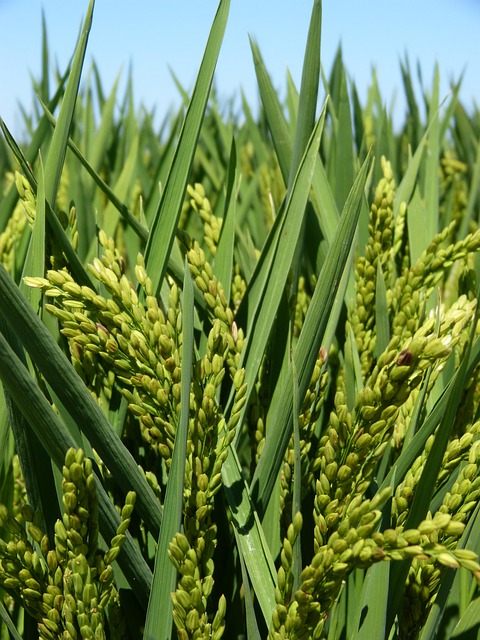Delta-9 THC vs CBD: Unlocking the Right Choice for You

Delta-9 THC and CBD are distinct cannabinoids found in cannabis. Delta-9 offers psychoactive effects like euphoria but carries risks of anxiety and dependence, while non-psychoactive CBD is popular for managing pain, anxiety, and inflammation without cognitive alteration. Users should make informed decisions based on desired outcomes, tolerance, and health status, consulting healthcare professionals for personalized guidance.
Delta-9 THC and CBD, two prominent compounds in cannabis, offer distinct experiences. Understanding their effects is crucial for making informed choices. This article delves into the world of delta-9 THC, exploring its potent psychological impacts and considerations, while also highlighting the natural alternative, CBD, and its therapeutic benefits. We compare these compounds, shedding light on key differences and similarities. Whether you’re considering delta-9 for recreational use or exploring CBD for wellness, this guide helps you navigate and choose what’s right for your needs.
- Understanding Delta-9 THC: Effects and Considerations
- CBD: A Natural Alternative and Its Benefits
- Comparing the Two: Key Differences and Similarities
- Making an Informed Choice: Factors to Consider for Personal Use
Understanding Delta-9 THC: Effects and Considerations

Delta-9 THC, often simply referred to as Delta-9, is a potent cannabinoid found in cannabis plants. Known for its psychoactive effects, it’s responsible for the ‘high’ associated with marijuana use. Understanding Delta-9’s impact on the mind and body is crucial when considering its use. The effects can vary widely depending on factors like dosage, method of consumption, and individual tolerance. Users often report heightened sensory perception, increased relaxation, and altered thinking patterns. However, Delta-9’s potency also means it can induce anxiety, paranoia, or disorientation in some individuals, especially when consumed in high doses or by inexperienced users.
When considering Delta-9, it’s important to be mindful of potential short-term and long-term effects on mental and physical health. Regular or heavy use may lead to dependence, and there are ongoing debates about its long-term impact on brain development, particularly in adolescents. Additionally, the legal status of Delta-9 varies globally, with some countries and regions having more stringent regulations, making access and usage complex. As with any substance, responsible and informed use is key.
CBD: A Natural Alternative and Its Benefits

Cannabidiol, or CBD, has gained significant attention in recent years as a natural alternative to Delta-9 THC. Derived from the hemp plant, CBD offers a range of potential benefits without the psychoactive effects associated with its more well-known counterpart. One of the key advantages is its anti-inflammatory properties, making it a popular choice for managing chronic pain and reducing joint inflammation. Additionally, studies suggest that CBD can help reduce anxiety and promote better sleep, offering a safer and more natural way to cope with these common issues.
The versatility of CBD is another appealing aspect. It’s available in various forms, including oils, capsules, topicals, and edibles, allowing individuals to choose the method that suits them best. As research continues to uncover its therapeutic benefits, CBD presents an exciting option for those seeking alternative solutions for stress relief, improved well-being, and managing specific health conditions without the mental alterations associated with Delta-9 consumption.
Comparing the Two: Key Differences and Similarities

When comparing Delta-9 and CBD, it’s crucial to understand their distinct characteristics and overlapping properties. Delta-9 THC, primarily known for its psychoactive effects, induces feelings of euphoria and relaxation by binding directly to the brain’s CB1 receptors. This makes it popular for recreational use but also raises concerns about potential cognitive impacts.
In contrast, CBD (Cannabidiol) is non-psychoactive and doesn’t attach to CB1 receptors. Instead, it interacts with other systems in the body, modulating pain, anxiety, and inflammation responses. While Delta-9 offers a more immediate and intense effect, CBD provides subtle yet potentially longer-lasting benefits. Both compounds are derived from cannabis but offer different experiences, catering to varied user preferences and specific health needs.
Making an Informed Choice: Factors to Consider for Personal Use

When considering Delta-9 THC or CBD for personal use, it’s crucial to make an informed choice based on your unique needs and circumstances. Both compounds have distinct effects; Delta-9 is known for its intoxicating properties, inducing feelings of euphoria and relaxation, while CBD is non-intoxicating and often sought for its potential therapeutic benefits without the high.
Several factors should guide your decision. First, understand your desired outcomes: whether it’s stress relief, better sleep, or pain management. Secondly, consider your tolerance and previous experience with cannabis products. If you’re unfamiliar with Delta-9, start with low doses to gauge its effects. Additionally, consult a healthcare professional, especially if you have any pre-existing conditions or are taking other medications, as both Delta-9 and CBD can interact with certain drugs.
When deciding between Delta-9 THC and CBD, understanding their distinct properties is key. Both offer unique benefits, but Delta-9 provides psychotropic effects, while CBD remains non-intoxicating. Consider your desired outcome, as well as any specific health concerns or preferences for natural alternatives. By weighing these factors, you can make an informed choice that aligns with your personal needs and goals. Remember, consulting a healthcare professional is always advisable when exploring new substances, especially in the ever-evolving world of cannabis products like Delta-9 and CBD.


































